Davies & Mitchell Deliver Safe & Fair Play Message For Female Sport To UN Human Rights Mission
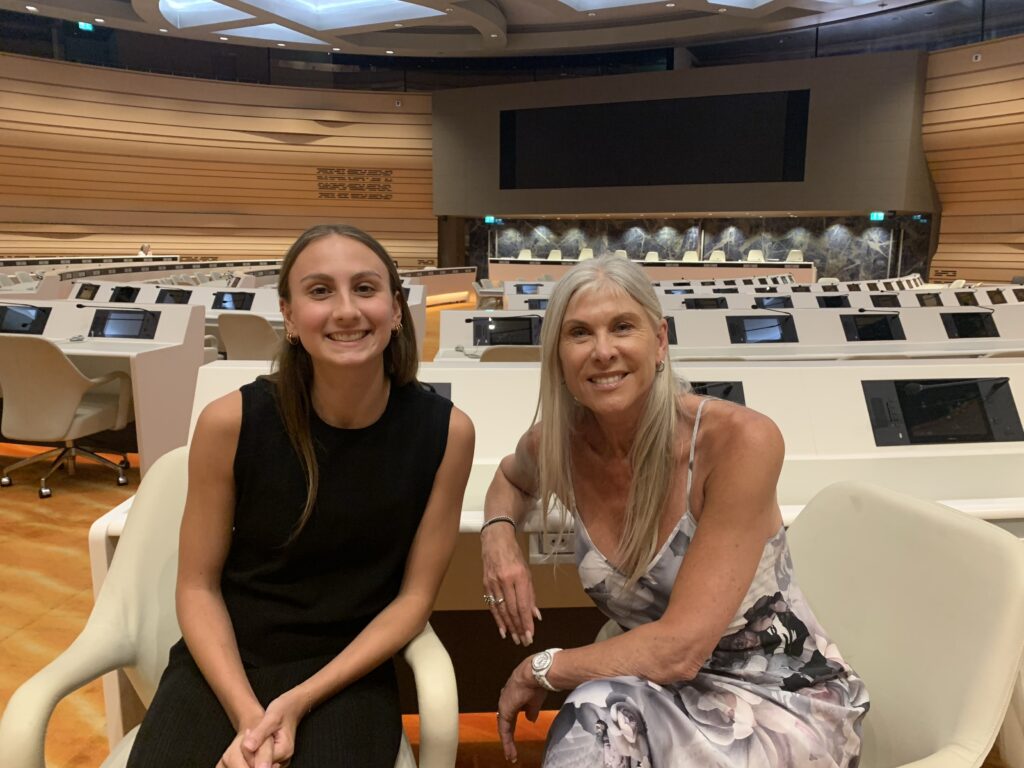
Sharron Davies and Chelsea Mitchell have both been robbed of rightful rewards in women’s sport by athletes relying on male advantage to deliver gold ahead of female opponents.
Here’s where the experience of the two women differ: Davies was awarded silver in the Olympic 400m medley final in 1980 behind an East German rival pumped with the male hormone testosterone since the age of 12; while Mitchell is one of four female athletes who in 2023 launched legal action against the Connecticut Association of Schools and the Connecticut Interscholastic Athletic Conference after being beaten out of rightful status by transgender biological male athletes.
The two women delivered their message for safe and fair play for female athletes on a sports panel during the 56th session of the UN Human Rights Council in Geneva this week.
The Paris 2024 Olympics looms on the horizon and while rules in swimming, athletics and cycling ring-fencing the women’s category for females only will prevent male advantage from impacting those sports at the Games, many other disciplines, including boxing, will allow any transwoman who qualifies for the Games to muscle in on female competition with male advantage.
The impact of that stretches from denying females qualification to the Games through to denying them rightful places in finals and on the podium. If that is about Fair Play, then unsafe play is every bit as important as females are forced to confront male strength, size and weight in sports where governors have opted to discriminate against women and place them at risk.
The Trans lobby has looked at Paris 2024 and used the Games as an opportunity to say ‘so, where are the trans athletes swamping sport?’ Two points:
- Transmen, biological females, very largely opt to delay any hormone therapies during their sports careers and remain in the women’s category they have a right to be in
- Transwomen, biological males, are now prevalent in women’s competition across a wide spectrum of sports, and happy to use male advantage to transform their status in sport, many the examples of athletes who were mediocre in male competition capable of making and even topping podiums in female competition at every level from local community and schools through to college and on to World and even Olympic levels.
It’s a big problem, one that has led to a worldwide Save Women’s Sport Movement campaigning on a daily basis for the restoration of Safe and Fair Play in female sport.
Davies and Mitchell are a part of that movement and this week were invited to explain the impact of male advantage in female sport to government and UN officials during the 56th session of the UN Human Rights Council in Geneva. The sports panel was co-hosted by ADF International and the Permanent Mission of the Gambia at the UN.
Science confirms that male difference and, in sporting context, advantage, are very real indeed. Here are just two of many references (mine and many more from others) over the past several years that outline the work of the likes of Dr Emma Hilton, a prize-winning development biologist and research associate specialising in Cellular & Developmental Systems and well as Evolution, Systems and Genomics at the University of Manchester, and others in the fight to save the women’s sports category for females:
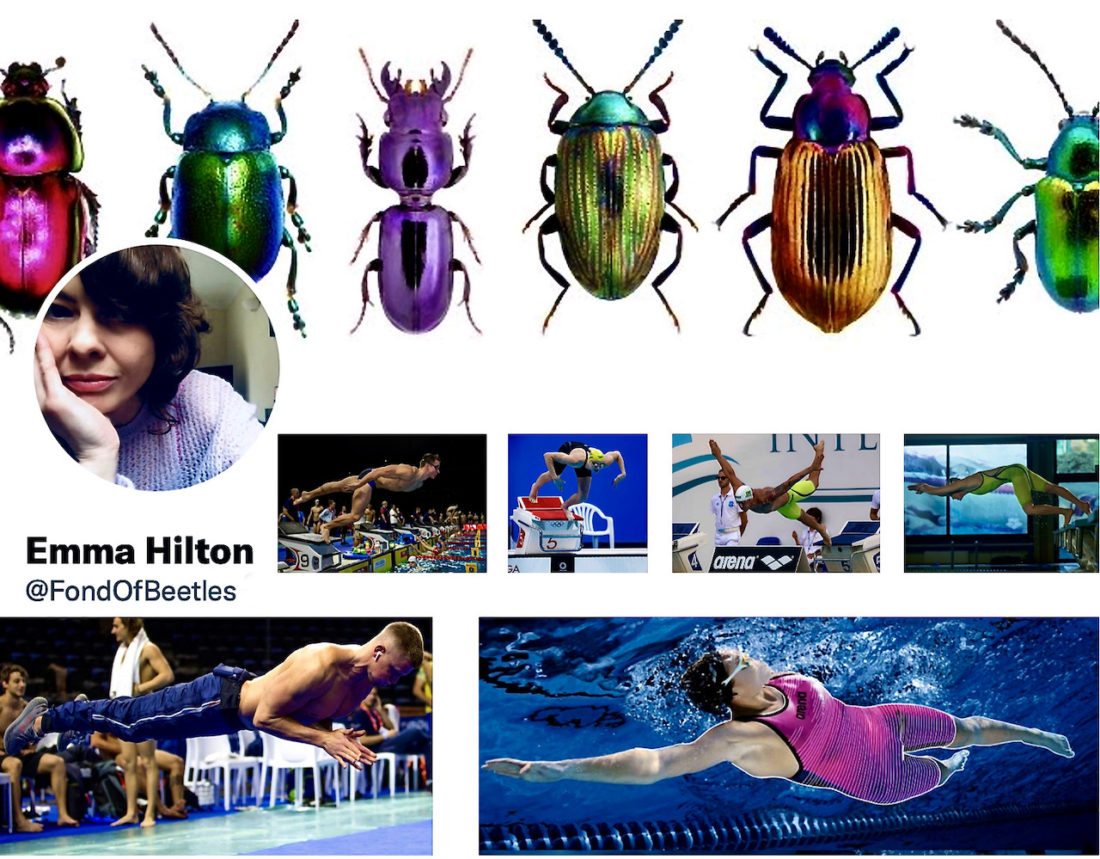
When Ideology Trumps Science: A response to the Canadian Centre for Ethics in Sport’s Review on Transwomen Athletes in the Female Category – Miroslav Imbrisevic, Cathy Devine, Leslie A. Howe, Jon Pike, Emma Hilton & Tommy Lundberg
The International Olympic Committee framework on fairness, inclusion and nondiscrimination on the basis of gender identity and sex variations does not protect fairness for female athletes – Tommy R. Lundberg, Ross Tucker, Kerry McGawley, Alun G. Williams, Grégoire P. Millet, Øyvind Sandbakk, Glyn Howatson, Gregory A. Brown, Lara A. Carlson, Sarah Chantler, Mark A. Chen, Shane M. Heffernan, Neil Heron, Christopher Kirk, Marie H. Murphy, Noel Pollock, Jamie Pringle, Andrew Richardson, Jordan Santos-Concejero, Georgina K. Stebbings, Ask Vest Christiansen, Stuart M. Phillips, Cathy Devine, Carwyn Jones, Jon Pike, Emma N. Hilton
The campaigners, scientists and others backing women’s sport for female athletes only are part of a sorority and support network so fed up with unfair play for women in sport, the trans issue just the latest of a vast catalogue of sex discrimination in Olympic sports dating back to the start of the Modern Games in 1896, that they have found the courage to speak up and raise awareness of the harm being done to girls and women in sport.
Many others have acknowledged that they would like to voice their opposition to the presence of males in female competition but have not done so because they feel the discrimination would simply deepen.
More than 100 elite British sportswomen told the BBC in March this year that they are uncomfortable with males competing against females in their sport but were fearful of the consequences of going public with their concerns.
That toxic environment has become a part of women’s sport despite rules in many codes that forbid sex-based discrimination an d insist on safety and Fair Play for women.
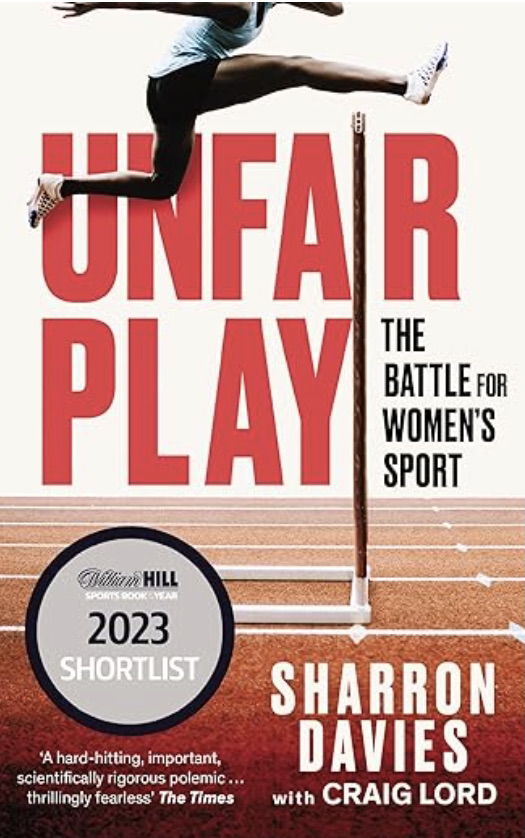
Addressing delegates in Geneva, Davies, co-author of Unfair Play (now available in paperback) with this journalist, has campaigned for the sex-based provisions in sports rules to be reinforced since the International Olympic Committee took down the remaining barriers to males granting access to female sport after the Rio 2016 Olympics.
The presence of male advantage in female competition brought back horrid nightmares of her own Olympic career, which stretched from 1976 to 1992, covering the height of the East German doping era. At the Moscow Games of 1980, Davies took an historic silver in the 400m medley behind Petra Schneider, a product of the GDR’s secret State-Plan 14:25 doping program.
Schneider’s World-record victory in 1980 would have still won gold at the subsequent four Olympics, a medal at Sydney 2000 and Athens 2004 and made the final at every Games in history barring London 2012.
She was a big winner for the communist state that abused her with banned substances that would cause her life-long health problems. Ahead of testifying against her coaches and doctors in the German Doping Trials of 1998-2000, Schneider acknowledged that she had discovered after the fall of the Berlin Wall in 1989 that she had been consistently and systematically doped with male hormones from the age of 12.
The International Olympic Committee had access to evidence of doping ever since 1991, the years the current president of the organisation, Thomas Bach, a fencing team gold medallist for the federal Republic of Germany in 1976, became an IOC member.
Addressing the gathering at the UN session, Davies charted the sporting crime of the 20th century, which not only involved an estimated 15,000 doped East German athletes but denied generations of other athletes their rightful rewards and the lifelong opportrubites that flow from success in sport.
Women were impacted far more than men because of the obvious unnatural boost that girls get from being given a touch of what boys get naturally at puberty. Davies said:
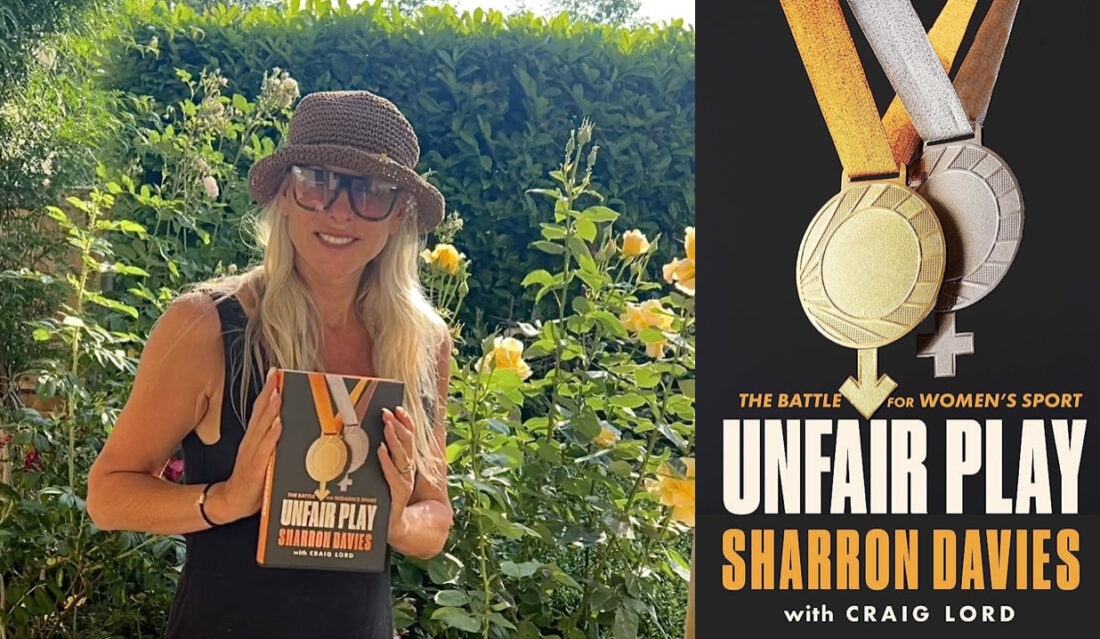
“Having lived through the injustice of my time, I know the importance of ensuring fairness for female athletes today. We know that the physical attributes caused by testosterone give males an unfair and irreversible advantage – yet time and time again, they are given a ticket to compete in female-only events, causing worthy female competitors to lose out.
“This is the sporting crime of the 21st Century. What is happening to women and girl athletes is a far-reaching human rights abuse with egregious implications for not only fairness and safety, but also for their opportunities to succeed in sports, scholarship opportunities, and beyond.
As this issue comes to a head, it is imperative that the international community do all it can to defend the basic human rights of women and girls in sports.”
Sharron Davies – with the first copy of Fair Play, the book written with Craig Lord
Biden Administration’s Axe Comes Down On Title IX Protections For Female Sport in Place For 50 Years
In the United States, the Biden Administration has been busy attempting to radically redefine “sex” as “gender ID” in Title IX provisions of the Education Amendments Act of 1972.
By making sex-based reality bow to gender self identity, the original intention of Title IX – to provide females with equal rights to those enjoyed by males – the Act no longer recognises the nature of sport and the hugely significant biological differences between men and women.
Chelsea Mitchell joined Sharron Davies on the sports panel to explain her experience in U.S. school/college sport. A frequent winner on the track, the promising runner then lost the Connecticut state championship title four times to a male athlete. Mitchell, who last year filed a lawsuit against state authorities with the help of Alliance Defending Freedom, told the UN gathering:
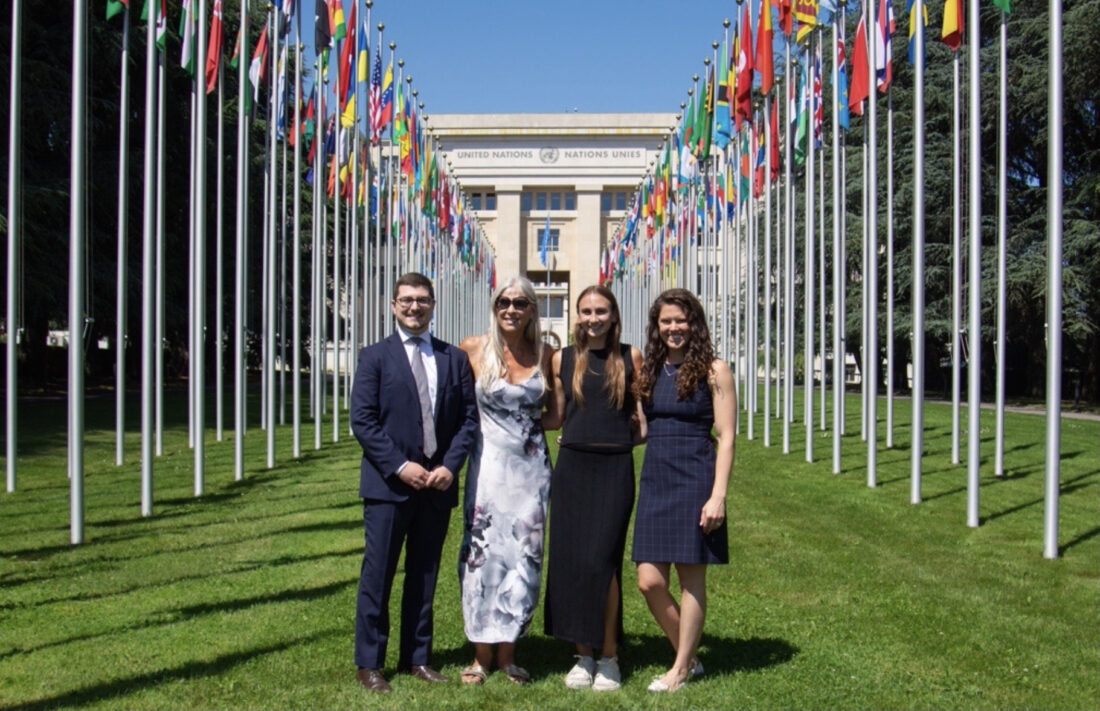
“It tells me that I’m not good enough; that my body isn’t good enough; and that no matter how hard I work, I am unlikely to succeed, because I’m a woman. Girls everywhere need to know their value.
“I’ve lost four women’s state championship titles, two all-New England awards, and numerous other spots on the podium to male runners. I was bumped to third place in the 55-meter dash in 2019, behind two male runners. With every loss, it gets harder and harder to try again.
“That’s a devastating experience. It tells me that I’m not good enough; that my body isn’t good enough; and that no matter how hard I work, I am unlikely to succeed, because I’m a woman. Girls everywhere need to know their value, which is why I have come to the United Nations to stand up for the human rights of women and girls in sports across the world.”
Chelsea Mitchell – Photo: Speaking women’s truth in sport to power at the UN (l-r): Giorgio Mazzoli, Director of United Nations Advocacy for ADF International, Sharron Davies, Chelsea Mitchell; and Rachel Rouleau, legal counsel for the Center for Conscience Initiatives with ADF – photo courtesy of ADF International
Safety In The Female Locker Room
Reem Alsalem, the UN Special Rapporteur on Violence Against Women and Girls, joined the calls to protect female-only sports. He noted:
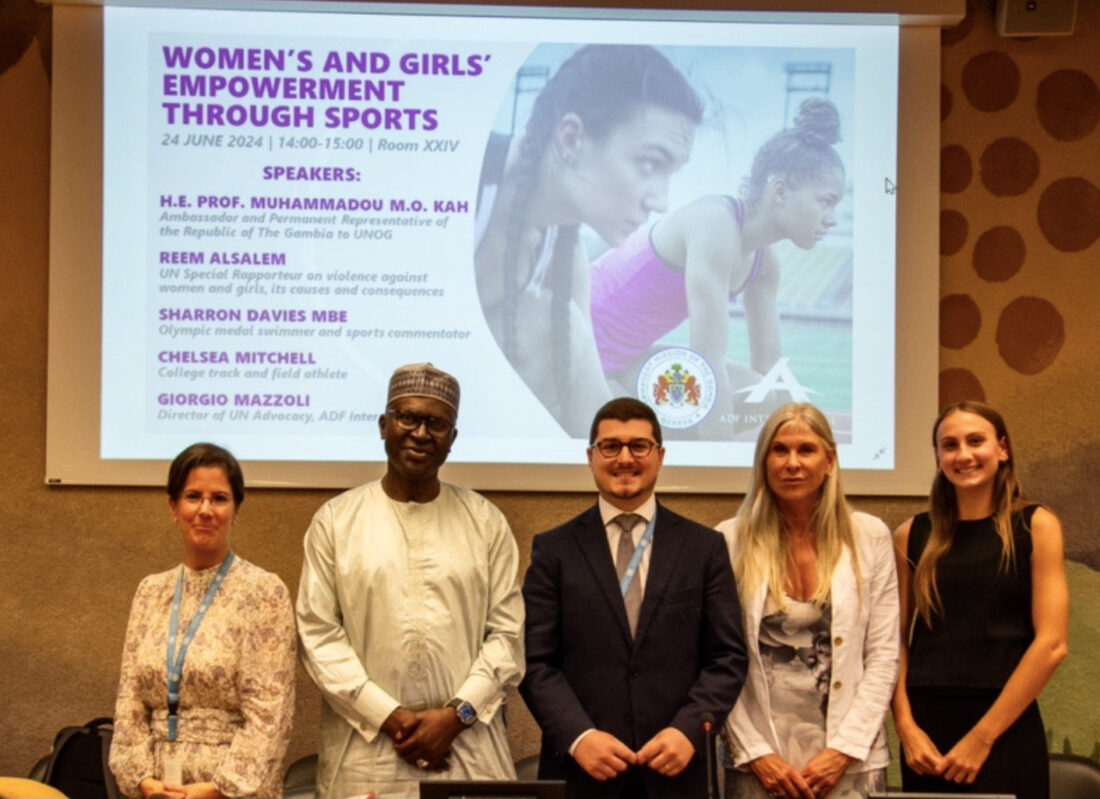
“To ensure effective equality, international human rights law allows at times differentiated treatment … differentiation in treatment does not always constitute discrimination if it is based on reasonable and objective criteria aimed at achieving legitimate purposes. This nuanced understanding is crucial in the context of sports, where fairness and equal opportunity must be balanced.”
Reem Alsalem – photo (second left to right): Reem Alsalem, UN Special Rapporteur on Violence Against Women and Girls; Giorgio Mazzoli (ADF International); Sharron Davies; and Chelsea Mitchell – Photo courtesy of ADF International
In December 2023, Alsalem publicly warned the Biden Administration that altering the definition of women in “Title IX” would result in “loss of privacy, an increased risk of physical injury, heightened exposure to sexual harassment and voyeurism, as well as a more frequent and accumulated psychological distress due to the loss of privacy and fair and equal sporting and academic opportunities.”
Davies, who will commentate for the BBC at the Paris 2024 Olympic Games in July and August, noted the risks inherent in the experience of college girls in swimming, track and field and others sports in which females athletes are challenging American sports authorities still allowing biological males into female space sand races.
She said: “Female college athletes were not only told to stay silent when they’d been exposed to male genitalia in the changing rooms twice a day, but were instructed to seek psychological help and re-educate themselves. They did not give informed consent. Their feelings were unimportant. This is a severe violation of their rights and must not be allowed to continue.”
Giorgio Mazzoli, Director of United Nations Advocacy for ADF International who moderated the panel discussion, summed up by saying: “Female sports and spaces belong to women and girls. Sports federations, national governments, and the United Nations can no longer ignore the voices of women and girls whose achievements have been directly affected by male participation in female sports categories. Female athletes have equal rights to fairness, safety, and privacy, both on and off the playing field. Authorities must follow the science and steadfastly uphold the integrity and fairness of female sports.”